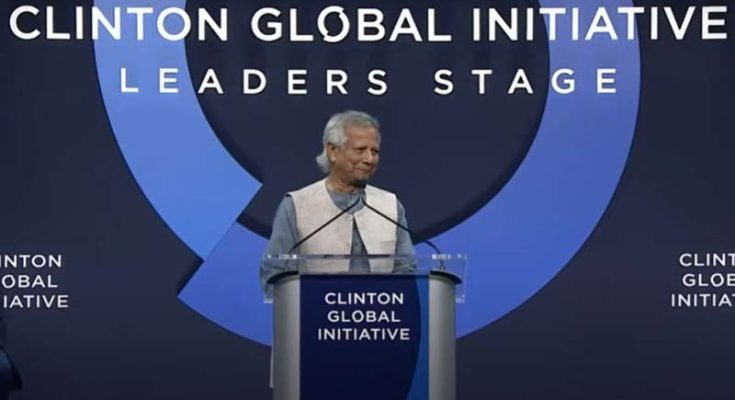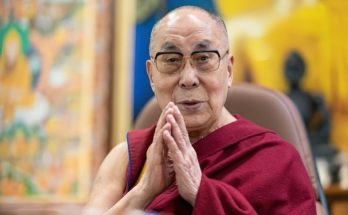#MuhammadYunus, #SheikhHasina, #Bangladesh, #BillClinton, #JoeBiden, #US
New York/IBNS-CMEDIA: Nobel laureate and chief adviser to Bangladesh’s interim government, Muhammad Yunus, acknowledged that the ousting of Sheikh Hasina as the Bangladeshi Prime Minister was part of a carefully orchestrated “design and conspiracy.”
Speaking at the Clinton Global Initiative’s annual meeting, Yunus emphasized that the events leading to Hasina’s removal did not happen by chance.
Yunus was introduced by former US President Bill Clinton, with current President Joe Biden also in attendance.
During his speech, Yunus praised student leaders, introducing three of them to the audience and highlighting their pivotal role in shaping the future of Bangladesh.
“They are the ones driving the creation of a new Bangladesh—let’s wish them every success,” Yunus said, noting that while the students may seem ordinary, their impact on the country has been profound.
He described their efforts as transformative, adding, “When you see them in action or hear them speak, you will be moved. They shook the entire nation.”
Yunus singled out student activist Mahfuj Abdullah, whom he referred to as the “brains behind the revolution,” though Abdullah humbly denied being the sole leader, crediting others for their involvement.
Yunus further stressed that the revolution was not spontaneous but was “amazingly and meticulously planned.”
He added, “It was well-designed, and the leadership remains anonymous, so you can’t stop it by targeting one person. It’s far from over.”
The student-led mass movement successfully toppled PM Sheikh Hasina’s 16-year rule, leading to Yunus being appointed as Bangladesh’s chief advisor in August.
Hasina fled the country after resigning as the Prime Minister and she is currently staying in India.
However, there has been ongoing speculation about the involvement of external forces in the revolution.
Earlier reports hinted at the presence of an “invisible hand” in Hasina’s ouster.
At the event, Bill Clinton praised Yunus for his contributions, saying, “Few people have done as much as Yunus to transform the lives of ordinary individuals who otherwise would not have had access to credit.”





